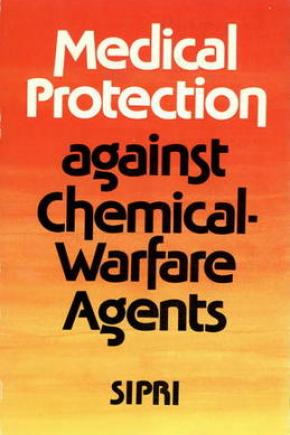Medical Protection against Chemical Warfare Agents
In recent years, there has been considerable interest in the problem of medical treatment of and protection against poisoning by organophosphorus compounds: this class of chemicals includes many pesticides in widespread use in agriculture, as well as chemical-warfare nerve agents—the most lethal modern chemical weapons. Certain drugs can successfully counter some of the toxic effects of some organophosphorus compounds, but there are still some significant limitations in the therapeutic methods available today.
Continued research into this problem is important, not only in the context of pesticide poisoning, but also for developing effective means of protection against the possible use of organophosphorus nerve agents in war. This book, which is based on the proceedings of an international symposium attended by toxicologists, pharmacologists, biochemists and disarmament experts, describes the current status of medical protection against organophosphorus poisoning, reviews the current research efforts in this area, and assesses the possibilities of more effective treatment methods being developed in the future.
Introduction: Defences against chemical warfare
1. Clinical aspects of intoxication by cholinesterase inhibitors
2. Acetylcholinesterase inhibitors: Examples of their modes of action and their utility as scientific tools
3. Success and failure of oxime therapy in acute poisoning by organophosphorus compounds
4. The effects of antidotes in experimental animals intoxicated by carbamate and organophosphorus cholinesterase inhibitors
5. A comparative study of pralidoxime, obidoxime and trimedoxime in healthy men volunteers and in rats
6. Organophosphates and central cholinergic systems
7. Reactivation of phosphorylated brain cholinesterase in vivo
8. Kinetic studies on chemical reactions between acetylcholinesterase, toxic organophosphates and pyridinium oximes
9. Comparative studies of the protective effects of pyridinium compounds against organophosphate poisoning
10. Limitations of pharmacotherapy in organophosphate intoxications
11. The possibility of complex therapy in acute dimethoate poisoning
12. The prophylactic value of oximes against organophosphate poisoning
14. Some toxicological consequences of the alkylating action of organophosphorus compounds
15. Blood and brain cholinesterase activity in human death cases, in normal human subjects and in some laboratory and domestic animals
16. Medical protection against chemical-warfare agents

